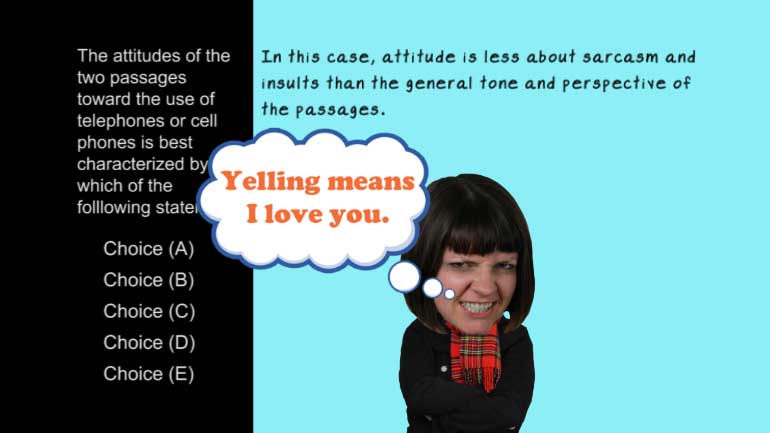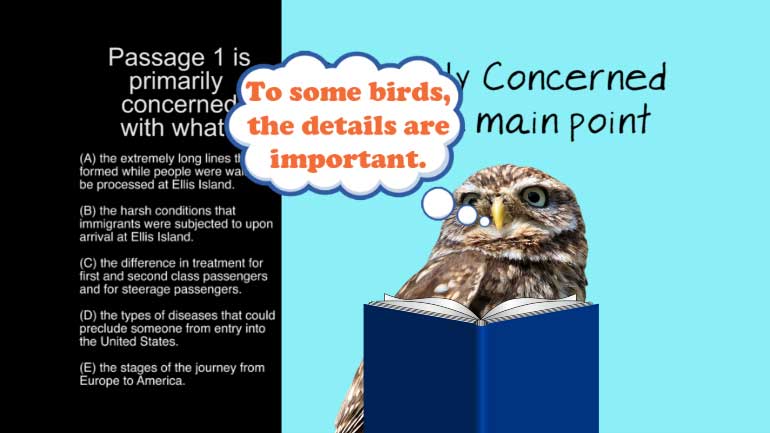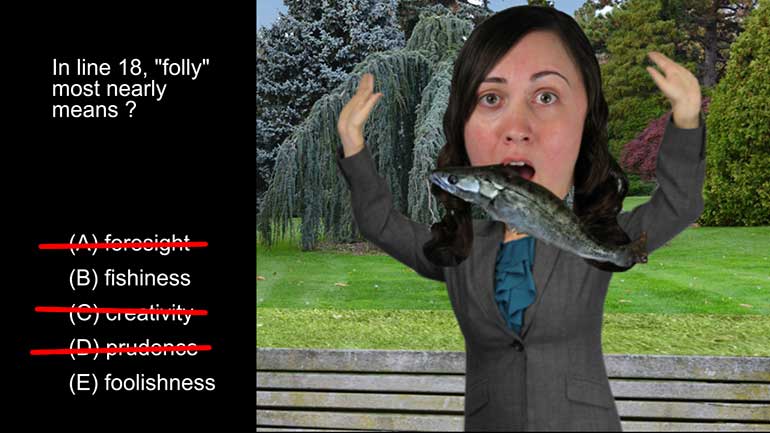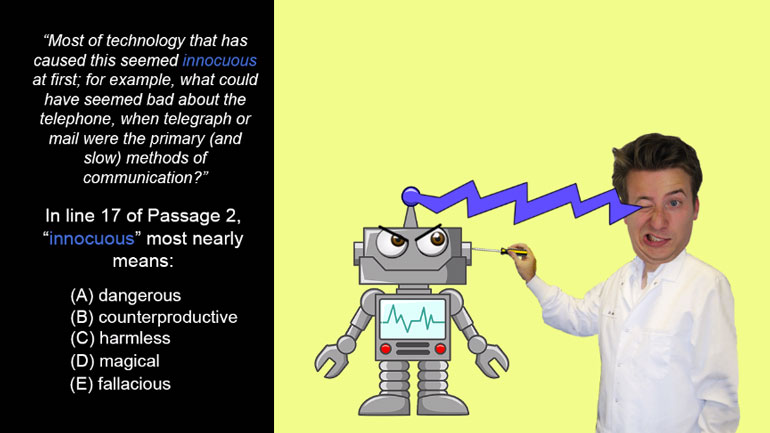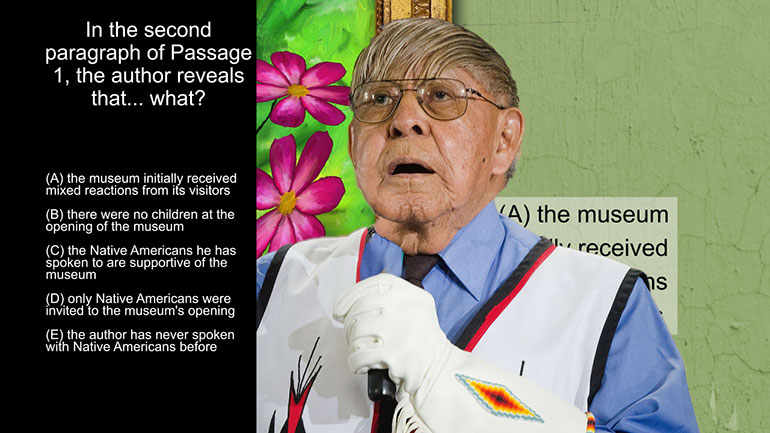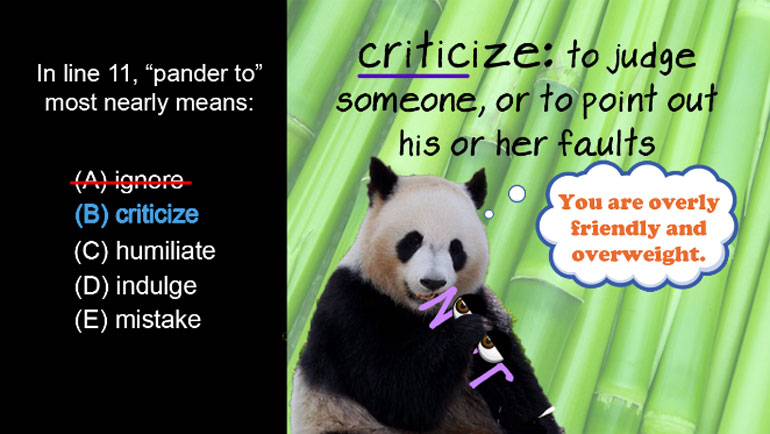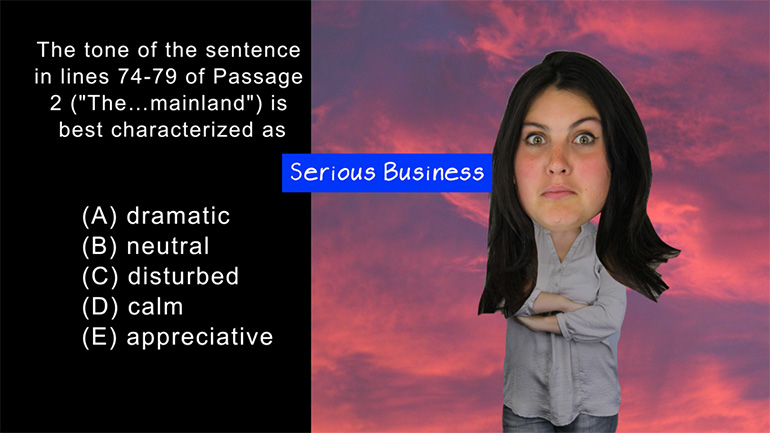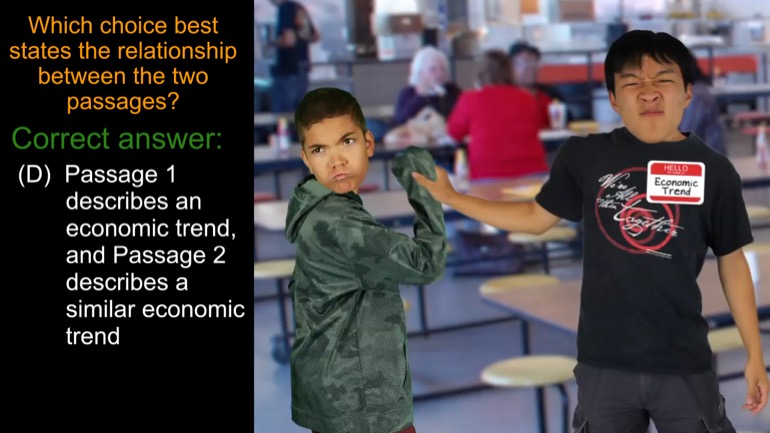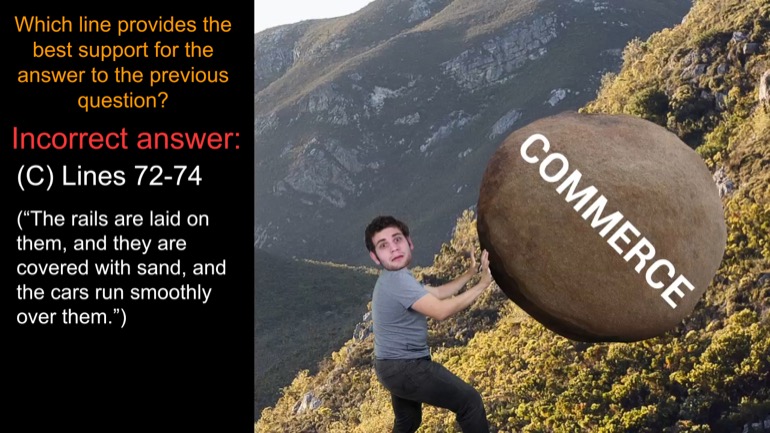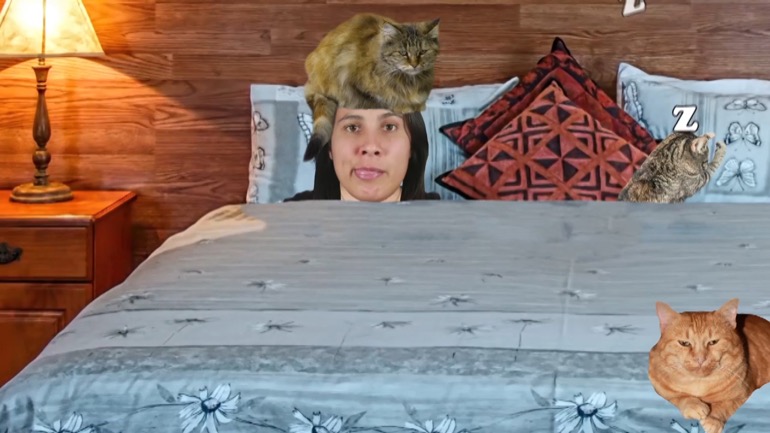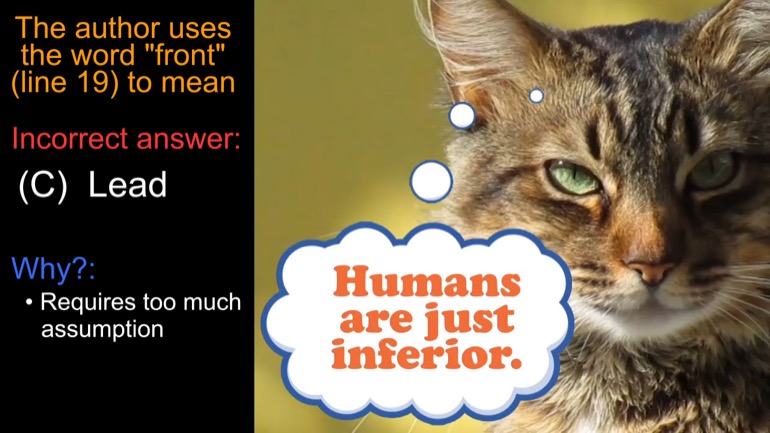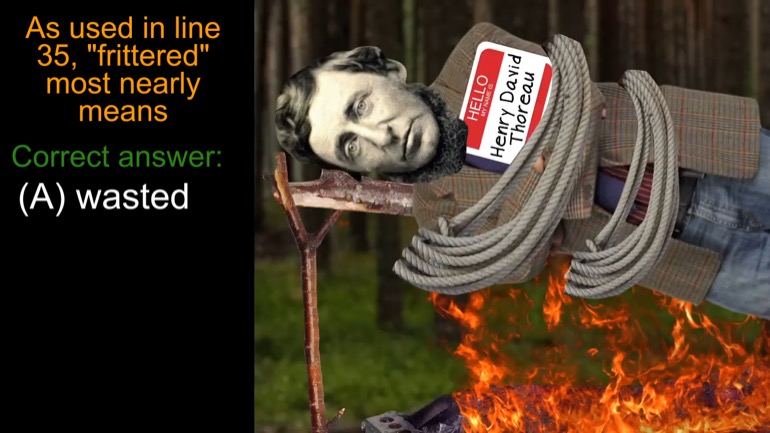ShmoopTube
Where Monty Python meets your 10th grade teacher.
Search Thousands of Shmoop Videos
SAT Reading 2.3 Passage Comparison 171 Views
Share It!
Description:
SAT Reading: Passage Comparison Drill 2, Problem 3
- Foreign Language / Korean Subtitled
- Foreign Language / Arabic Subtitled
- Foreign Language / Spanish Subtitled
- Foreign Language / Chinese Subtitled
- Rhetoric / Analyzing word choice
- Product Type / SAT Math
- Literary / Figurative Language in Historical/Cultural Setting
- Literary Nonfiction / Syntax, Diction, Voice, Tone, Imagery
- Literary / Symbolism, Allegory, Allusions
- Reading closely / Using analogical reasoning
Transcript
- 00:03
A Shmoop a day keeps the doctor away...
- 00:16
The phrase "climb upon the rattling wagon of wishful illusions" functions as...what?
- 00:29
This phrase comes directly from one of Hurston's quotes, so we can take a look at what she's saying.
- 00:34
First things first: she didn't climb aboard the rattling wagon of wishful illusions.
- 00:39
If she did, something like this would happen...
Full Transcript
- 00:42
It's a wagon full of illusions, right? This tips us off that it's not real and probably not good.
- 00:48
There's not a chance that (D) is the right answer.
- 00:50
We just figured out that this wagon isn't real, so there's no way this is a reference
- 00:54
to a wagon she rode when she was a child. The context around the quote lets us know
- 00:59
that the "wishful illusions" to which Zora is referring are the ideas of other writers.
- 01:05
She thinks that a lot of her critics get on her case because she writes things the way
- 01:08
they are, not the way she'd like them to be.
- 01:11
Knowing this, we can leave (A) by the wayside. A person with that much gumption is probably
- 01:16
not the sort who'd be unwilling to do the work to further her craft.
- 01:22
There's no talk in the passage about Hurston avoiding metaphors, making (E) easy to leave
- 01:26
in the dust as well.
- 01:30
We're pretty sure the real Hurston could come up with a better one.
- 01:33
Choice (C) is kind of heading down the right path. Zora does express the idea that other
- 01:37
writers are representing things in a way that she feels is untrue.
- 01:44
But the topics the other writers are writing about aren't necessarily "unrelated,"
- 01:49
or not connected, with the topics Zora writes about. She just disagrees about the ways those
- 01:53
topics are represented. It seems our journey is at an end. (B) is
- 01:57
the only answer left, and it totally makes sense.
- 02:00
"Figurative" refers to language that uses lots of "figures of speech" like metaphors
- 02:05
and all that good stuff. This covers our requirement that the "wagon of wishful illusions"
- 02:09
not be real, making (B) the correct answer.
- 02:12
It's too bad; we like a "wishful illusion" every now and then.
Related Videos
How was the Beanie Baby era parallel to the Tulip Bubble? Similar events, only the TulipMania almost bankrupted Holland. Bean Babies only bankrupte...
Contemplating one's life is key to fulfilled happiness. Thoreau's theme revolves around the simple life well lived. He clearly never tried virtual...
Thoreau was all about simplicity; anything that took away from his vision was the enemy. Mechanical aids were one of them. Guess he had to train a...
Thoreau uses "front" to mean "face". He wants to face The Facts of Life without shying away from our natural tendencies, roots, and the simply way...
What does "frittered away" mean in this context? Wasted. Wasted by the way. Thoreau claims we fritter away our lives praying to modern complex dist...
